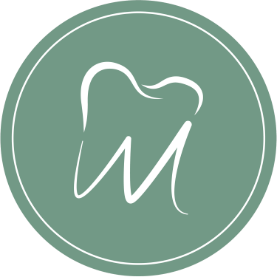
Noticing unusual patches or dark spots on your tongue can be unsettling. However, not every dark mark signals a serious condition. In fact, many are harmless and often linked to lifestyle habits, pigmentation changes, or minor health concerns. Still, it’s helpful to understand what these marks could mean so you can respond appropriately. Since the tongue plays a vital role in speech, taste, and digestion, any visible changes deserve attention.
Let’s look at some of the most common causes behind the appearance of dark spots on the tongue and how to manage them.
Various Reasons Behind Dark Spots on the Tongue
Dark spots on the tongue can appear for several different reasons. While some are temporary and harmless, others may indicate underlying health issues. Knowing what’s causing them can help you figure out whether it’s time to seek medical advice or simply improve your oral habits.
Hyperpigmentation
Increased melanin in specific areas can lead to harmless pigment spots. These spots may show up as small, uneven patches, typically caused by:
- Genetic predisposition
- Hormonal shifts
- Use of certain medications
- Smoking or other tobacco use
Although they might look concerning, they usually don’t cause pain or lead to further complications. These spots often show up along the sides or top of the tongue and may be more noticeable in individuals with naturally darker skin.
Lingual Melanotic Macules
These tiny, flat, brown or black marks often develop from an overproduction of melanin in the tongue’s surface tissues. They may look like freckles and tend to remain stable in shape and size. Though they’re more common in adults, they’re usually harmless and don’t require treatment unless they start to change.
Oral Hairy Tongue
Despite its name, this condition has nothing to do with actual hair. Instead, it occurs when the tongue’s papillae (tiny projections) become elongated, trapping bacteria, food particles, and dead cells. Over time, this buildup leads to a dark, fuzzy appearance. Contributing factors include:
- Poor oral hygiene
- Smoking
- Excessive coffee or tea consumption
- Use of certain antibiotics
Fortunately, this condition is reversible. Regular tongue cleaning and avoiding irritants can help resolve it quickly.
Oral Thrush
Though oral thrush is typically known for white patches, these can become dark if stained by food or drinks. This fungal infection, caused by Candida yeast, thrives when your immune system is weakened or after taking antibiotics. Along with discoloration, symptoms often include:
- A burning or sore sensation
- Loss of taste
- Thick patches on the tongue or inner cheeks
Proper antifungal treatment usually clears up the infection within a few days.
Tobacco and Smoking
Smoking is a leading cause of discoloration in the mouth, including the tongue. The heat and chemicals from tobacco not only stain the tongue but also alter its natural pigmentation. This often results in dark brown or black spots, especially along the sides and surface. Over time, these marks can become permanent if the habit continues.
Other symptoms often include:
- Bad breath
- Dry mouth
- Increased risk of gum disease
Quitting tobacco is the best way to reverse and prevent further damage.
Tongue Trauma
Injuries like biting your tongue, burns from hot food, or irritation from dental appliances can leave bruises or dark marks. These spots often heal on their own but may feel sore for a few days. However, if the trauma is recurring—such as from poorly fitting braces or rough dental work—it’s best to have it addressed by a dental professional.
Underlying Medical Conditions
Although rare, some health conditions can present as dark spots on the tongue. These include:
- Addison’s disease – causes increased melanin in the skin and mucous membranes
- Vitamin B12 deficiency – leads to changes in the color and texture of the tongue
- Oral cancer – may begin as dark or reddish patches and require urgent care
If the spots are growing, changing shape, or accompanied by pain or bleeding, don’t delay a dental or medical visit.
Signs That Need a Dentist’s Attention
While many spots are harmless, some symptoms should never be ignored. Seek dental care right away if you experience:
- Spots that increase in size or change color
- Persistent burning, pain, or swelling
- Difficulty chewing, swallowing, or speaking
- Unexplained weight loss or fatigue
- Bleeding from the tongue without injury
A trusted Dentist Round Rock can examine your symptoms, conduct the necessary tests, and provide a treatment plan if needed. Timely evaluation is key when it comes to ruling out serious issues like infections or oral cancer.
Ways to Keep Your Tongue and Mouth in Great Shape
Keeping your mouth clean is one of the simplest yet most effective ways to prevent the appearance of dark spots. A clean tongue reduces bacteria buildup, minimizes staining, and supports overall oral health.
Here are some practical steps:
- Gently brush your tongue twice a day using a soft-bristled toothbrush
- Use a tongue scraper to remove residue from the surface
- Avoid smoking or chewing tobacco products
- Stay well-hydrated to prevent dry mouth
- Eat a nutrient-rich diet filled with fruits, vegetables, and whole grains
- Visit your dentist regularly for professional cleanings and evaluations
These habits don’t just benefit your tongue—they improve your total oral health and reduce your risk of gum disease, bad breath, and infection.
Treatment Options for Persistent Spots
Depending on the cause, several treatment options may help improve or eliminate dark spots on the tongue. Your dentist may suggest:
- Enhanced oral hygiene routines
- Antifungal or antibacterial medications for infections
- Nutritional supplements if you’re lacking key vitamins
- Smoking cessation support and advice
- Regular monitoring or a biopsy in suspicious cases
Each person’s needs vary, so it’s important not to self-diagnose. Let a qualified professional evaluate your symptoms to ensure the best outcome.
Dark spots on the tongue may be surprising, but they often stem from simple causes that respond well to basic care. By paying attention to your oral hygiene, quitting harmful habits like smoking, and visiting your dentist regularly, you can protect your tongue and keep it looking healthy.
If the spots linger or come with other troubling symptoms, don’t wait. Early intervention makes all the difference when dealing with oral health concerns.

